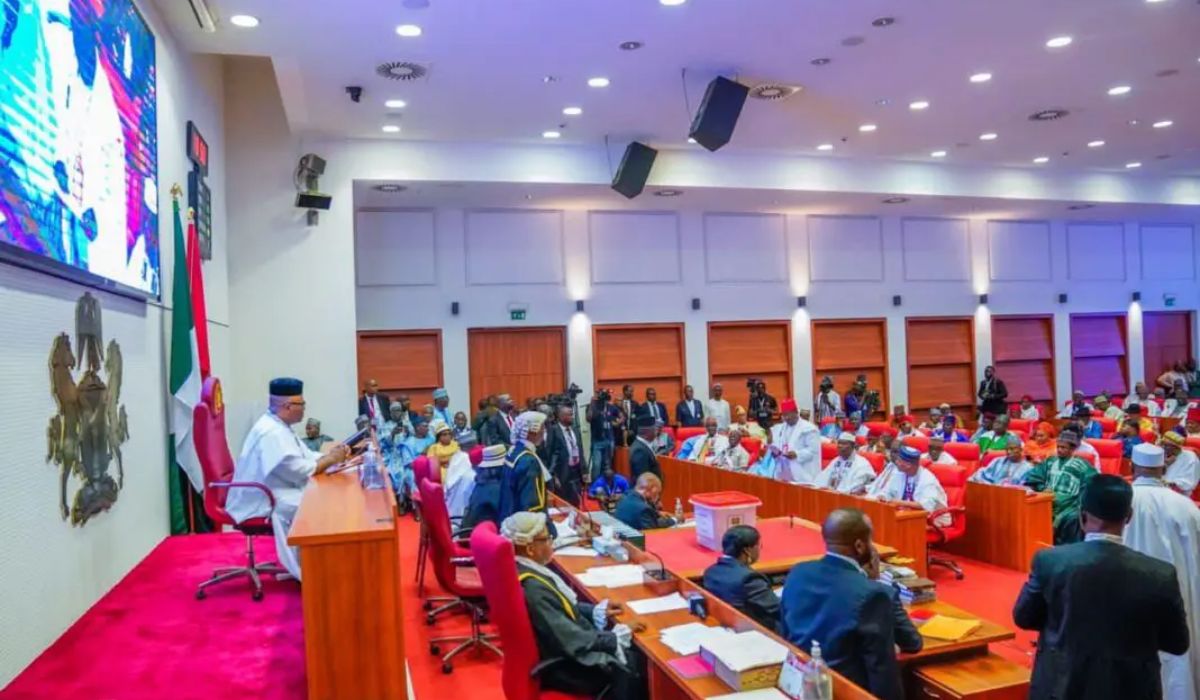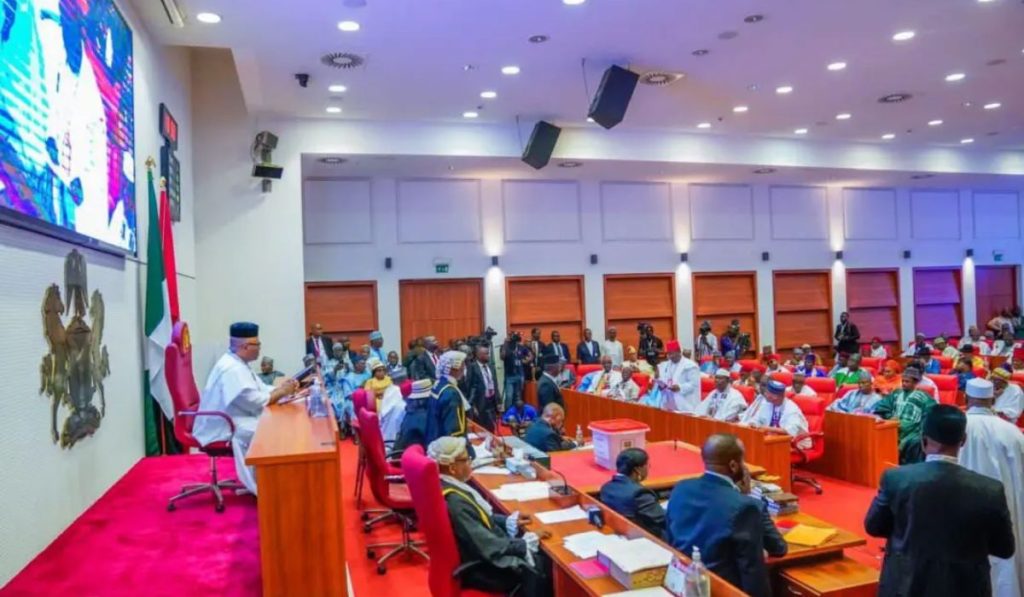Physical Address
304 North Cardinal St.
Dorchester Center, MA 02124
Physical Address
304 North Cardinal St.
Dorchester Center, MA 02124

The Nigerian Senate has initiated a significant step toward electoral reform by proposing to shift the burden of proof in election petitions from candidates to the Independent National Electoral Commission (INEC). This move is part of the ongoing review of the Electoral Act 2022 and the introduction of the new Electoral Bill 2025, which seeks to strengthen Nigeria’s democratic process, enhance transparency, and improve public trust in the electoral system.

Picture of INEC Office
Under the existing legal framework, the burden of proof in election disputes lies primarily with the petitioner — usually an aggrieved candidate or political party. This means that anyone challenging the outcome of an election must provide sufficient evidence to show that irregularities or electoral malpractices occurred.
However, many critics argue that this system is unfair to challengers, as INEC possesses most of the relevant documents and digital data — such as voter registers, result sheets, BVAS (Bimodal Voter Accreditation System) records, and transmission logs. Petitioners often face immense difficulty accessing these materials, which can hinder their ability to prove their claims effectively in court.
During plenary discussions on the new Electoral Bill, several senators advocated that INEC, being the body responsible for organizing and managing elections, should bear the legal responsibility of proving that the elections it conducted were free, fair, and compliant with established laws.
Senate President Godswill Akpabio and other lawmakers expressed support for the idea, emphasizing that INEC should be accountable for the processes it supervises. They argued that since the commission controls the electoral materials, it is only logical that it demonstrates the integrity of the election results.
This legislative proposal aims to ensure that INEC produces necessary evidence — including digital data, original result sheets, and collation records — whenever the conduct of an election is challenged. The Senate believes that this reform will make the commission more transparent and responsive, while improving the credibility of Nigeria’s electoral process.
The proposed shift of the burden of proof from petitioners to INEC has several objectives:
Supporters of the proposal see it as a groundbreaking step that will make elections more transparent and strengthen Nigeria’s democracy. They argue that since INEC controls the conduct of elections, it must also take responsibility for defending its processes before election tribunals.
Some senators also pointed out that the reform would help deter malpractice, as INEC officials would be more cautious and professional, knowing that they would later have to account for their actions in court.
However, not everyone agrees with the proposal. Critics warn that placing the entire burden of proof on INEC could overwhelm the commission, which already manages complex logistics across thousands of polling units nationwide. They argue that the new law should balance responsibilities between INEC and petitioners to avoid administrative strain and potential delays in court proceedings.
If passed, this reform will have far-reaching effects on Nigeria’s electoral and legal systems. The judiciary will need to adjust its interpretation of election laws to accommodate the new evidential framework. The proposal will also require INEC to adopt advanced technologies and improved data management systems to ensure it can easily retrieve accurate information for court use.
Legal experts emphasize that while the reform is progressive, its success depends on how clearly the law defines the scope of INEC’s responsibility. There must be specific guidelines detailing what kind of evidence the commission must provide and how courts should assess such evidence.
Beyond shifting the burden of proof, the Senate’s Electoral Bill 2025 also proposes other critical reforms, including:
These changes are designed to modernize Nigeria’s electoral framework and address loopholes that have previously undermined public trust.
The Electoral Bill 2025 has already passed its second reading in the Senate and has been referred to the Committee on Electoral Matters for detailed review. Once the committee completes its work, the bill will return to the Senate for further debate and possible passage before being transmitted to the House of Representatives and the President for assent.
Observers believe that if the bill is enacted into law, it will redefine how election petitions are handled in Nigeria. Petitioners would no longer face the overwhelming task of proving malpractice without access to official materials. Instead, INEC would have to justify its own conduct, backed by verifiable records.
While the reform is widely regarded as a positive step, several challenges remain:
The Senate’s move to shift the burden of proof to INEC marks a historic moment in Nigeria’s quest for electoral justice and transparency. If properly implemented, this reform will strengthen accountability, enhance fairness in election disputes, and increase citizens’ confidence in the electoral process.
However, the success of this initiative will depend on the clarity of the new law, the preparedness of INEC, and the cooperation of the judiciary. As Nigeria continues its democratic journey, reforms like this represent a bold step toward ensuring that every vote truly counts and that the integrity of elections remains unquestionable.